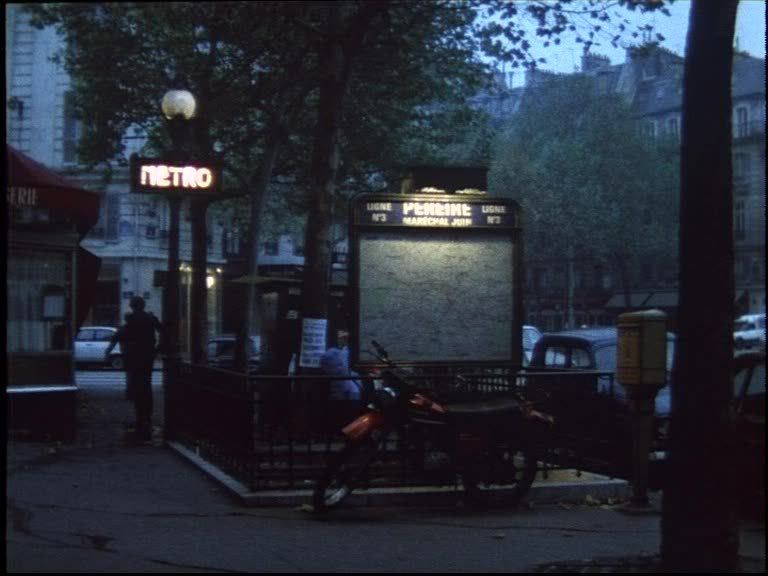
The Aviator's Wife may not be one of Eric Rohmer's most philosophically or thematically deep films, nor is it one of his most frequently cited; it is, nevertheless, one of his most charming films and one of my personal favorites. Its simple story is rigorously divided into structural blocks. François (Philippe Marlaud) and Anne (Marie Rivière) have a troubled relationship, since their schedules rarely intersect — he works all night, she works all day — and because Anne is still getting over her affair with a married pilot, the aviator of the title. Rohmer sets up the drama economically in a handful of early scenes, where François sees Anne with her ex, not realizing that they are only saying goodbye. He confronts her, and the two part on ambiguous terms. Afterwards, as François falls asleep in a café, there is an uncharacteristic iris-in on his face, then seconds later an iris-out as he wakes up again. The unusual device, a silent-era throwback that's rare in modern films and especially notable in comparison to Rohmer's normally unobtrusive cutting, raises the enticing possibility that what follows is simply a fantasy. In any event, the rest of the film, comprising the bulk of its length, is essentially divided into two lengthy dialogues. The first is between François and Lucie (Anne-Laure Meury), a young girl he meets in a park as he's trailing the pilot and his wife, trying to get clues about this man's relationship to Anne. Meury provides a mesmerizing performance, and Rohmer spends seeming eternities in closeup on her expressive face, capturing every nuance of her adorable, charming mannerisms. Her mere presence is sufficient to stop the film in its tracks, to push the ostensible narrative into the background; her effect on the audience mirrors her effect on François, who becomes so engrossed in her that his own troubles and the circumstances in which he ran into her begin to seem remote. Following this interlude, the second long dialogue is a tentative reconciliation between François and Anne at her apartment.
As the images below show, the film's dominant color is green, giving way to deep blues only for the last few nighttime shots. Anne's apartment is imbued with a pale green hue by its floral wallpaper, and the bulk of the film is set either there or in the open air of the park, which provides a leafy backdrop for François and Lucie's rambling, flirtatious conversation. Rohmer, often mistakenly thought of as a filmmaker with a limited visual sense, is actually finely attuned to settings, color, and mise en scène, and he dedicates special care to decorating his characters' living spaces. Anne's apartment is perfectly designed, never cluttered but with just enough detail to suggest the way she has personalized her home: a fishbowl, reproductions of paintings taped to the walls, a vase of yellow flowers breaking up the monotony of green. These personal touches are particularly important in providing telling details about a character who jealously guards her personal space.
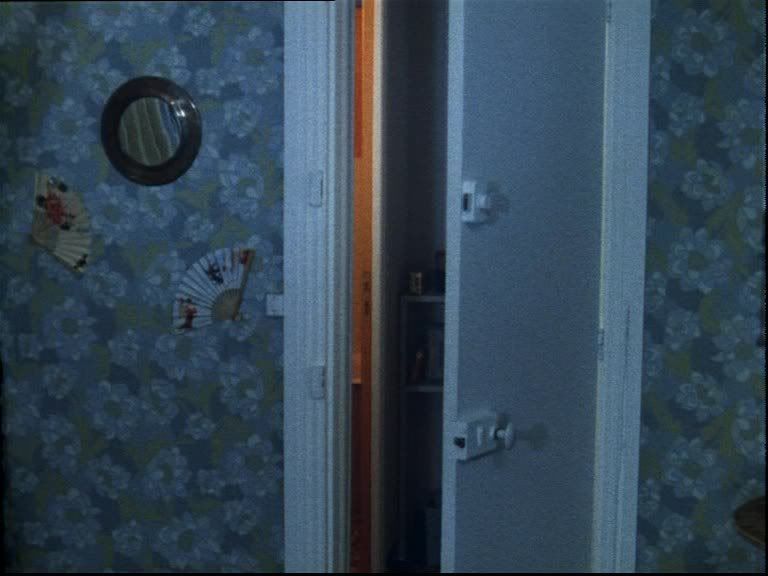


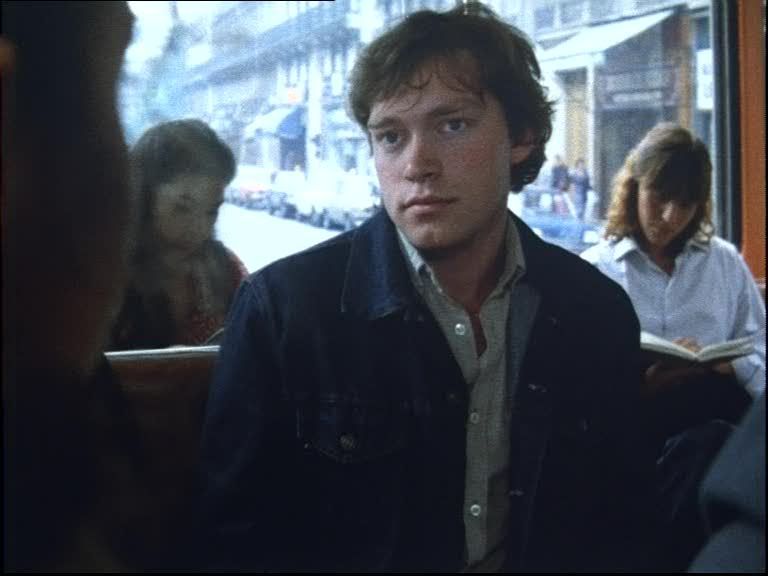
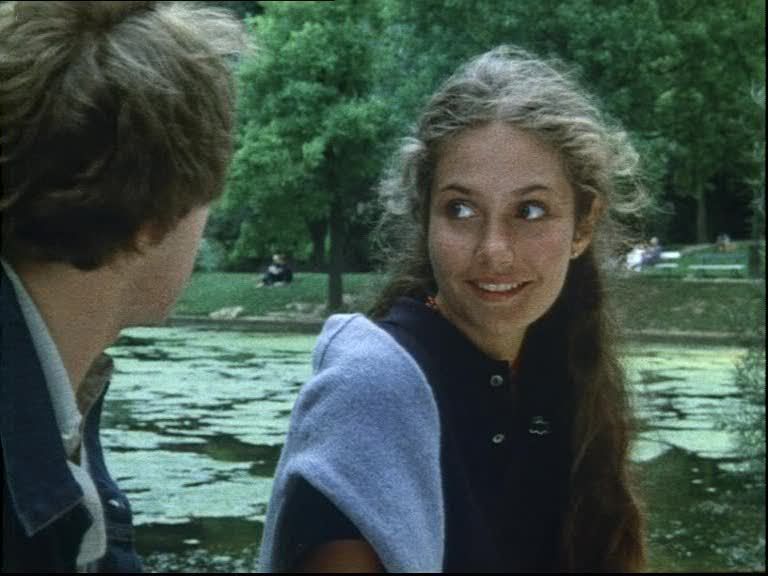
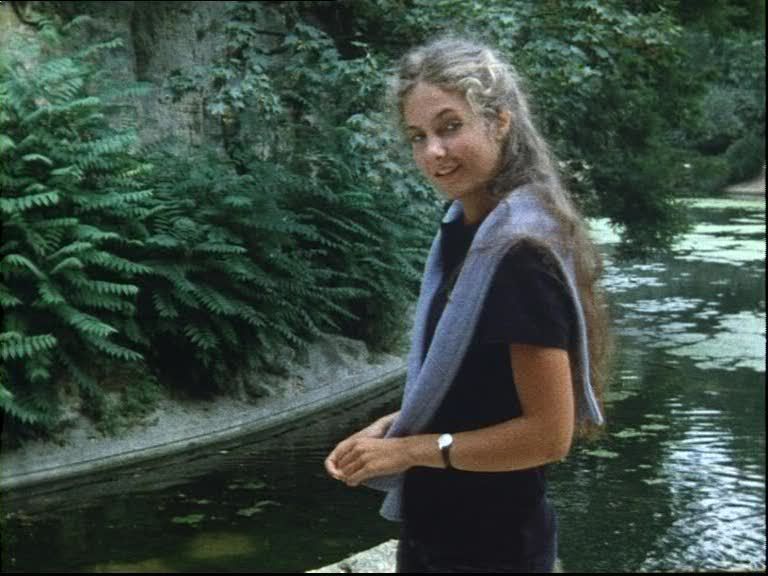
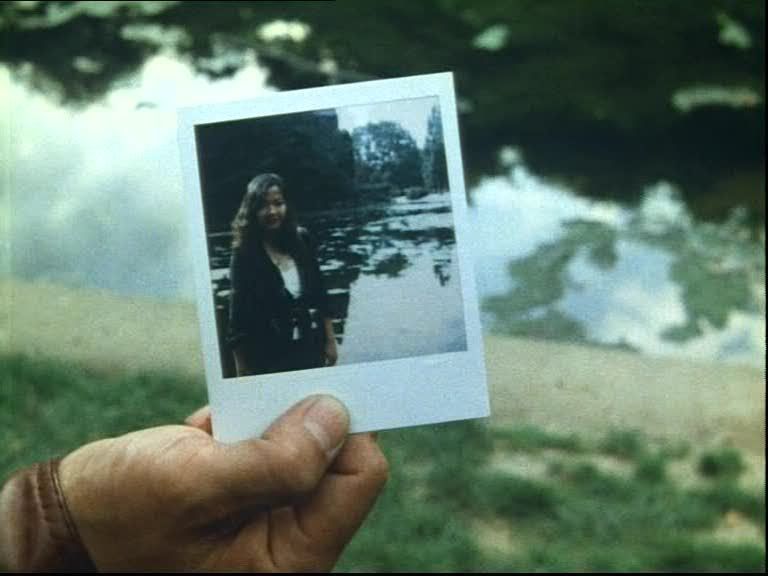
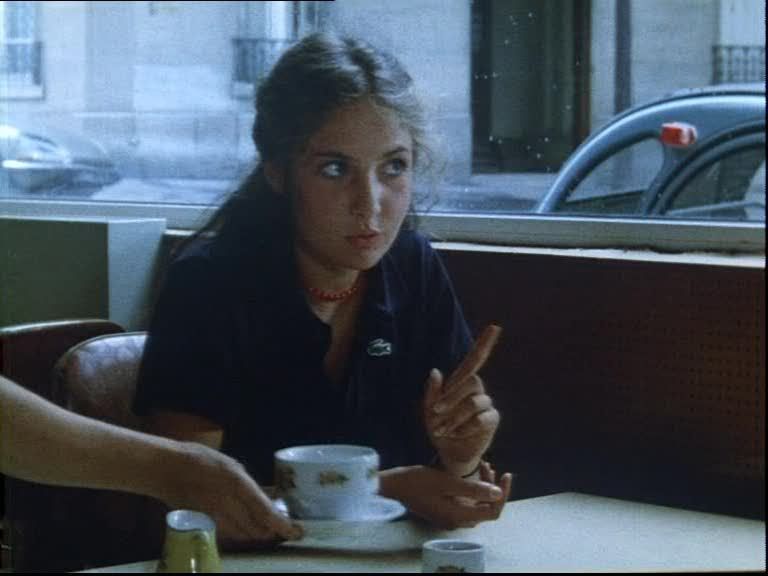

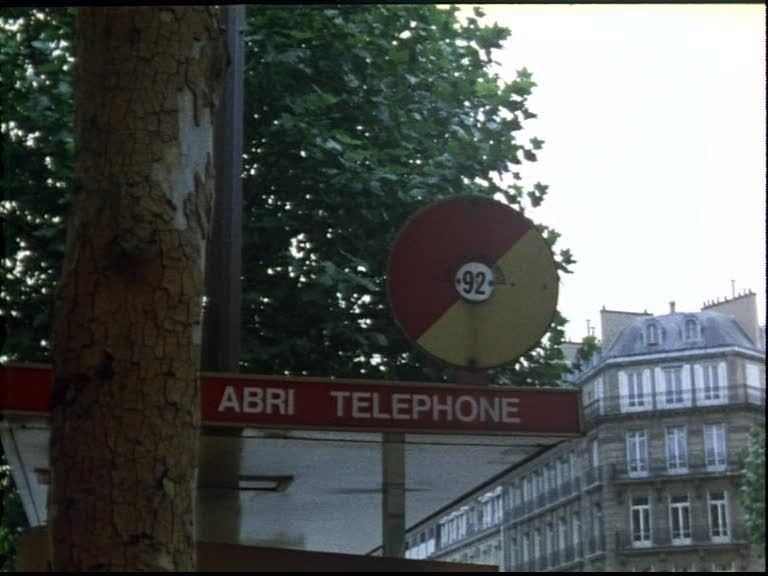
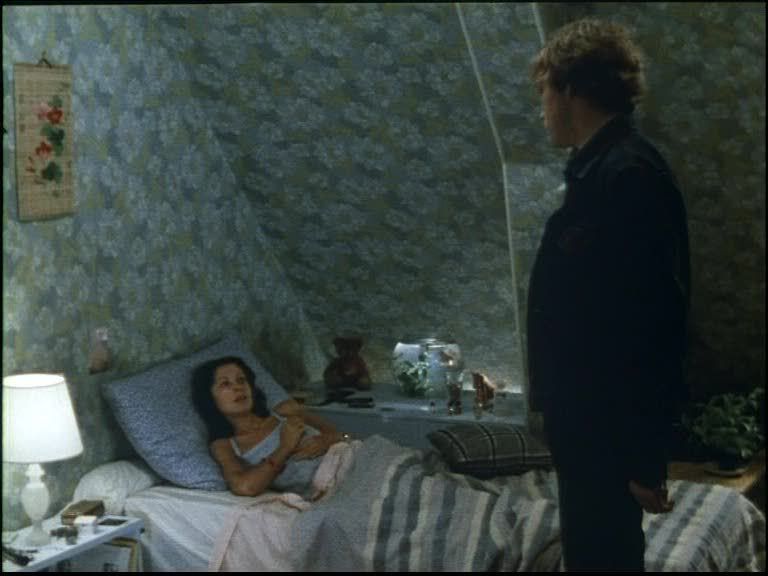
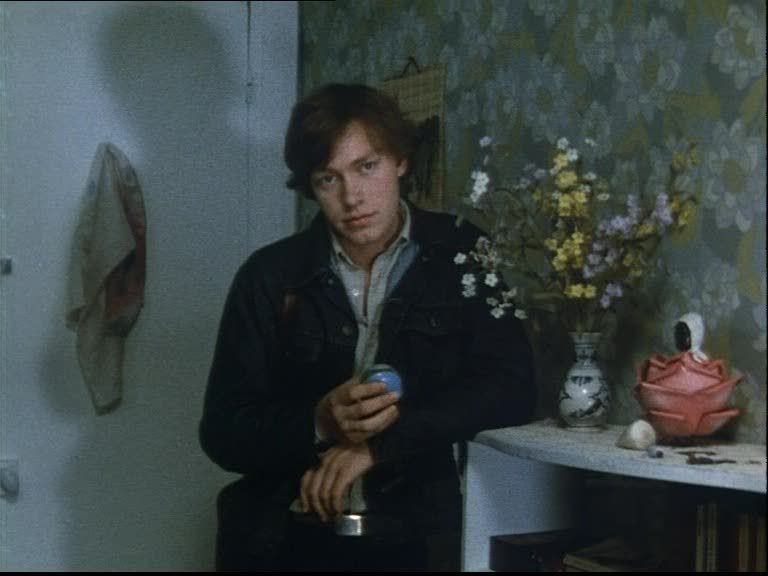

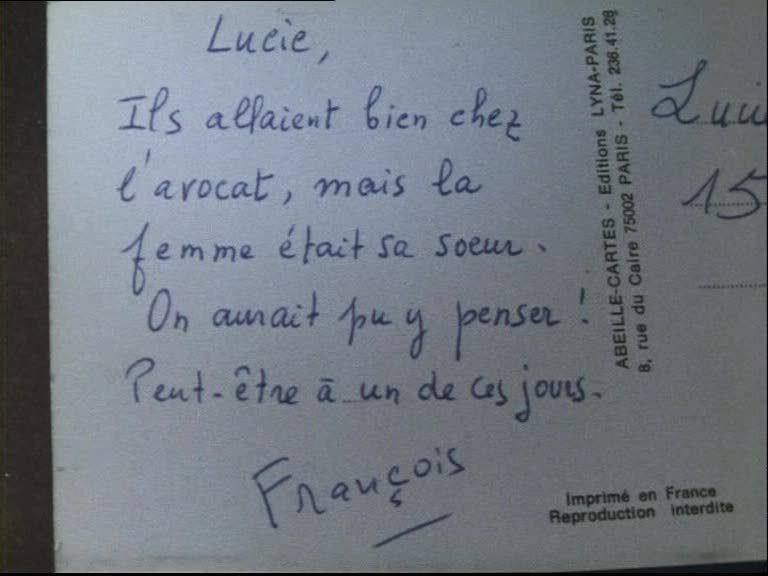
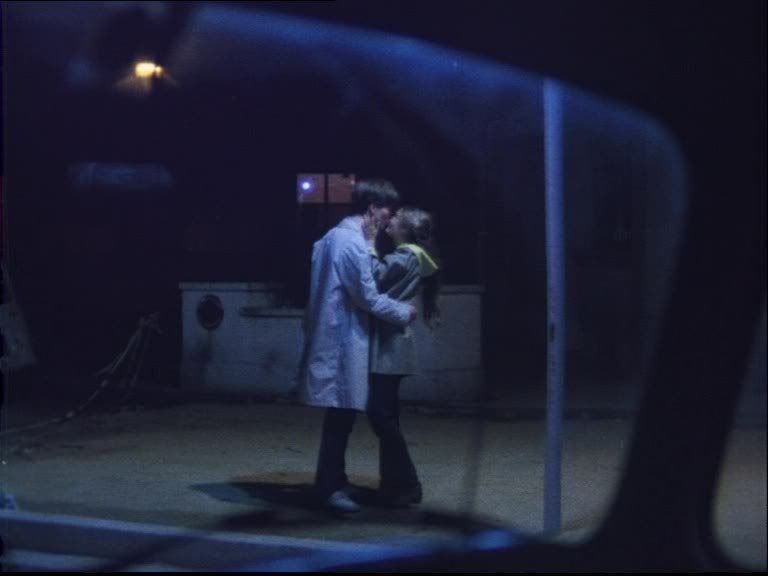
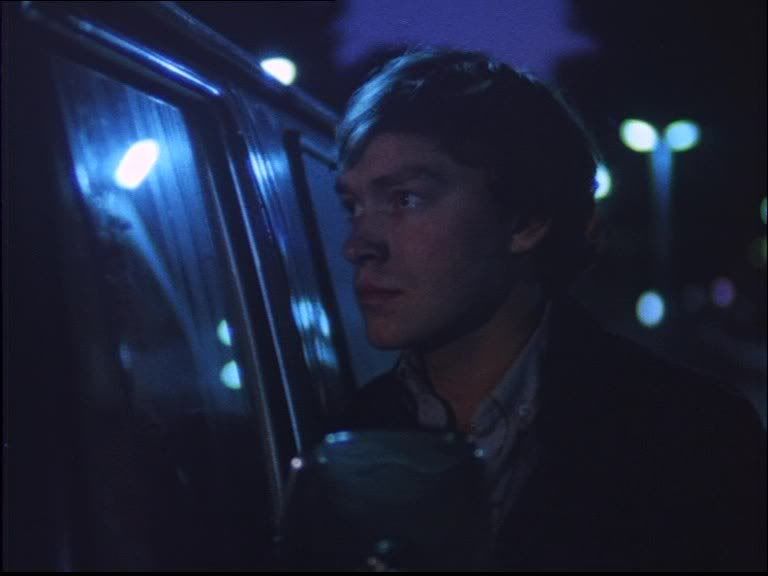
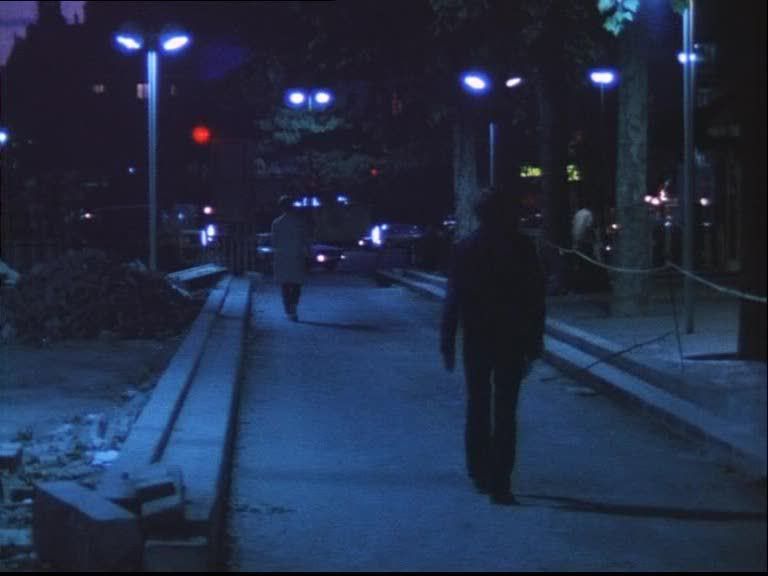
This is one of my favorite Rohmers. The iris-in/iris-out is quite teriffic, and the whole film is ver much influenced by Murnau. Read (if you can get a copy) Rohmer's book on Murnau's Faust.
ReplyDeleteThe very beautiful Phillipe Marlaud died tragically in a camping accident, not long after the film was released.
Haven't had a review from you for a long time. Waiting for your next review.
ReplyDelete